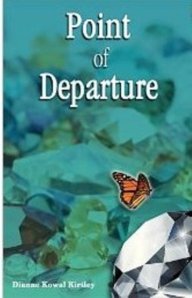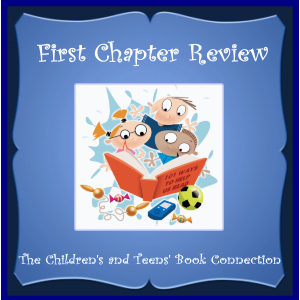At the turn of the seventeenth and eighteenth centuries, national states were on the rise. Versailles was constructed as a stage on which the Sun King, Louis XIV, acted out the pageant of absolute sovereignty while his armies annexed neighbouring territories for the greater glory of France. At the death of Charles II of Spain in November 1700, the Spanish throne and its extensive possessions in Italy, the Low Countries and the New World passed to his grandson, Philip, Duke of Anjou.
The post Leibniz and Europe appeared first on OUPblog.
Question: What do Napoléon Bonaparte, Walter Reed, the Panama Canal, and the Zika virus all have in common? Answer: The Aedes aegypti mosquito. Although its official common name, according to the Entomological Society of America (ESA), is the “yellowfever mosquito,” Aedes aegypti is also the primary vector of dengue, chikungunya, and the Zika virus.
The post A short history of the mosquito that transmits Zika virus appeared first on OUPblog.

Dianne Kowal Kirtley taught Creative Writing, Journalism and English at Nazareth Academy, a private, Catholic, college prep, coeducational high school in LaGrange Park, Ill. She also served as the English Department Chair and then became the Director of Public Relations, creating the school brochures, press releases and organizing events which promoted the school.
Website: www.kirtleybooks.com.
Thank you for joining us today, Dianne. Can you please start off by telling us a bit about yourself?
I loved my job at Nazareth Academy and since my retirement have maintained the close personal relationships with my friends at that school. I also am fortunate enough to enjoy some great vacations with my husband, family and friends. Our family enjoys summer vacations in Minocqua, WI, and we have taken some great trips with friends to Europe and a memorable cruise to Alaska. I have also spent much of the last seven years in the process of research and writing Point of Departure.
When did you first get bit by the writing bug?
Writing is something that I have always loved doing although it is a difficult task. I guess I always feel I have something to say, if not verbally then in a written medium. I have written short stories, one specifically for children, poetry and some shorter remembrances. Point of Departure is my first novel.
Why did you decide to write stories for the YA market?
I hope I have something significant to say to this age group: have the courage to act on your best impulses, think of others, and most of all, know that you are just as important as anyone else.
What is your favorite part of writing for this group? What is the greatest challenge?
The YA audience is so impressionable, and I would hope that the examples given in the work would be applicable to their lives. The greatest challenge is not to sound too preachy.
Can you tell us what your latest book is all about?
Point of Departure is about Charlotte Mailliard, whose family was closely tied to Joseph Bonaparte, Napoleon’s brother, called in America, the Gentle Bonaparte. Charlotte’s parents were personal secretaries to Joseph’s daughter and son-in-law, but in 1841, Eloi Mailliard, Charlotte’s father moved his family from the French intrigue and came to central Illinois, the western frontier of America. Charlotte had been raised and educated with Napoleon’s nephews in Florence, where she was born, and outside of Paris at the Bonaparte château called Survilliers. She had heard the strange stories of savages in America and was sure her life will never be the same. It is, however, at the strange place called Illinois, that she met the young half-breed whom she will love all her life. As Charlotte matured, she learned that love and loss seem to go hand in hand, but it was the impact of the Civil War that taught Charlotte the power of survival.
What inspired you to write it?
Point of Departure is historical fiction work actually based on my husband’s great-great grandmother. When I found her books, letters, family records and drawings in 2004, I felt her story to be most engaging and, as is said in my press release, “begged to be told.”
Where can readers purchase a copy?
Point of Departure can be purchased through Amazon or BarnesandNoble.com.
What is up next for you?
I am currently working on a remembrance of my mother. The next novel is just in the idea stage, but will be set in North Carolina and is a decidedly darker tale for a mature audience.
Do you have anything else to add?
I want to thank everyone for their interest in Point of Departure. Enjoy!
Thank you for spending time with us today, Dianne. We wish you much success.

BLURB: It is 1841, and fourteen-year-old Charlotte Mailliard should be concerned with French fashion, French tradition and her studies with her classmates, Napoleon Bonaparte’s nephews. Instead, her Papa has decided to move his family to America. Now Charlotte can only think of a strange state called Illinois and the “savages” she will encounter on her long journey. No one could forsee that the family’s trek to that frontier would bring them to a Kentucky slave auction, an experience that would forever change their lives.
Two decades earlier, another Frenchman, Henri Moreau, a street urchin of Paris, had made his way to that same Illinois, where life was a pleasant mix of his and native customs. But in 1832, that peace was destroyed by the Blackhawk War, an event that tragically impacted Henri and his family.
As the nation and the Mailliard and Moreau families mature, it is the common theme of war that causes Charlotte to realize she is but one cog in the endless cycle of love and loss, the bane of a country where another Illinois native son will not abide “a house divided.”
COVER: I like the color scheme with the jewels hidden underneath what looks like the ocean. It just seems a rather plain choice for a YA novel.
FIRST CHAPTER: Charlotte and her family are readying to leave Survilliers, Mortefontaine, France, in a carriage bound for England. From there, they will board a steam ship bound for America. They will travel three months before reaching their final destination in Illinois. In mere minutes, the only life Charlotte has ever known will be gone forever. They carry with them great treasures that will hopefully establish them in their new home where Charlotte will speak the ugly sounds of English instead of the beautiful, melodious sounds of her native French and Italian.
KEEP READING: Yes. I’m very intrigued with this story of a French family emigrating to America. Charlotte proves to be a fiery young woman from the onset, angered over her entire life being tossed into chaos by her father’s decision to relocate. The author provides a fair amount of backstory on Charlotte and her family, creating the sense of loss the girl must feel as she leaves everything she knows behind to travel to a new country. Though I’m not normally a fan of too much backstory in a first chapter, I feel it works well here because it makes Charlotte a sympathetic and relatable character. There’s also a hint of danger created by the treasures the family is carrying with them on their journey. Definitely a book I want to keep plowing through to see how Charlotte adapts to her new country and the challenges of civil war.




Tonto Fielding was slighted by the Oscar Committee this year when his silent film, “The Treasonist,” was overlooked in favor of “The Artist.”
In fact, it is clear that I started the silent film revival, since I had been raising funds for my film’s production for the past twenty years. Clearly, it was my idea first. The Oscar committee informed me that my little film was turned down, because it had already been rejected at every film festival I had submitted it to, reciting some stupid rule about redundancy.
A young Napoleon Bonaparte, who is also played by Tonto Fielding, is portrayed as a poor and pretentious social climber, who narrowly escapes an adulterous scandal by declaring that it was done in the defense of Julia of Corsica.
Obviously, what was lost on the Academy, was that my portrayal was based on the traditions of abstract mime, where on the surface it appears that there is no central plot or character. This allows the audience to creatively formulate its own idea on the subject. Also lost on them, was the artistic inclusion of performing cows, dancing horses, geese, camels, llama's and happy dogs. This represented that the gossipers were completely without honor, and that everybody is flawed. Goodness does not depend on formal propriety and external sentimentalism, but lies deep within.
I guess I’ll have to go straight to DVD on this one, pending funding.







